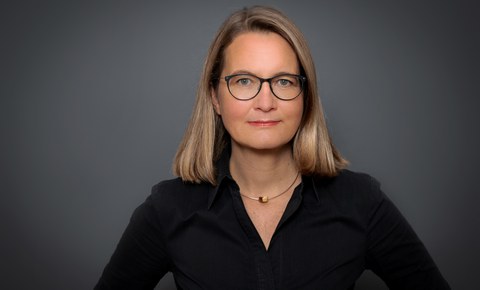Feb 15, 2023
How do we make our university inclusive?
Essay by Prof. Gesine Marquardt, Chair of Social and Health Care Buildings and Design at the Institute of Buildings and Design, Faculty of Architecture, and Commissioner for Students with Disabilities & Chronic Illnesses at TU Dresden.
An excellent university is an inclusive university. It enables all its members to fully realize their individual potential and their goals. Inclusion thus not only contributes to the realization of equal opportunities, but is an important prerequisite to succeeding in the competition for the best staff and students. This principle guides our actions at TU Dresden.
In order to be an inclusive university, all processes related to research, teaching and administration must be designed in a way that they do not present any accessibility issues. TU Dresden is already implementing the existing legal requirements in a highly comprehensive manner, but a variety of obstacles persist nonetheless. In order to continuously work towards eliminating them, we need broad participatory processes that take into account the needs and spheres of action of the various groups of our university, such as students, lecturers, researchers, and administrative staff. At TU Dresden, one way of implementation is to advertise the special funds for inclusion provided annually by the Saxon State Ministry for Science, Culture and Tourism throughout the university and to allow all members of the university to apply for them with their project ideas. Since 2015, more than 120 projects have been funded. They have encompassed a wide variety of measures: They were used to purchase centrally assistive technology available for loan (e.g. braille displays, board-reading devices, and hearing technology), provide accessible sports equipment and courses (e.g. tandems and sailboats), network students with ADHD, and offer courses in sign language. Moreover, a central Reporting Office for Accessibility Issues was established for reporting structural and digital barriers.
At the same time, the university's leadership needs to make a clear commitment to inclusion. This commitment is the prerequisite for the issue to become an integral part of all processes. At TU Dresden, the Advisory Council on Inclusion is made up of representatives from all groups of the university and is an important advisory body for the University Executive Board. The Council is headed by the Vice-Rector University Culture, who is responsible for the various areas of activity in the field of inclusion. These areas of activity have been defined in a TU Dresden strategy paper, the Action Plan for the Implementation of the UN Convention on the Rights of Persons with Disabilities. The Action Plan was developed in a broad participatory process in which all members of the university were able to contribute suggestions for areas of activity and individual measures. The “Quality Management” area of activity anchors the continuous monitoring of the measures and the systematic recording of their progress. The Advisory Council on Inclusion has a steering role: Problems can be better identified and potential for further development in the field can be identified and addressed.
One of the key themes of the Action Plan is dealing with mental illness, which has become a challenge in the lives of many students and employees. In this context, TU Dresden's University Health Management focuses on prevention and promotes greater awareness among all members of the university of how to deal with mental illness. This is necessary in particular because many students are affected by this problem and, unfortunately, there is hardly any legal leeway for compensation in the form of measures to alleviate disadvantages when completing graded academic work and examinations. It shows that the efforts for inclusion also face limits that lie outside the scope of action of individual universities and that still need to be overcome in the future.
Shaping our campus is another task that needs to be worked on continuously in the future. The campus development master plan and the inclusive outdoor space design manual aim to make our campus more accessible. However, the site was planned in the early 1900s – a time when the concerns of persons with disabilities were not structurally addressed. Thus, there are many steps at building entrances, and buildings situated on a slope also make it difficult to navigate the campus without accessibility issues using a wheelchair. With each renovation and new construction project, measures towards accessible design are implemented, but given the size of the campus and the large number of buildings, it will take some time before everything becomes fully accessible. The accessible guidance and orientation system, which particularly takes into account the needs of blind and visually impaired persons, is also being gradually implemented on the campus.
However, these persons encounter accessibility issues not only in the tangible environment, but also in TU Dresden's digital space. Being a public body of the State of Saxony, TU Dresden strives for digital accessibility on websites, of documents and also in its IT systems. The Center for Continuing Education regularly offers trainings on accessible documents for our employees. Moreover, the staff of the Working Group Services Disability and Studies provide advice on digital accessibility and are involved in prior testing. Nevertheless, blind and visually impaired students and employees still encounter obstacles in certain systems – including commonly used services and forms.
The future development of inclusion at TU Dresden not only requires the optimal design of processes and buildings. The topic should also be given greater focus in research. So far, there are only a few Chairs that have inclusion issues as a research topic. It would be sensible to strive for a stronger networking of these Chairs in the future, as well as a for a broader topical approach. This way, TU Dresden could show even more how the topics of “excellence” and “inclusion” can be further developed and implemented in all areas of university life and activities for the benefit of all members of the university.

